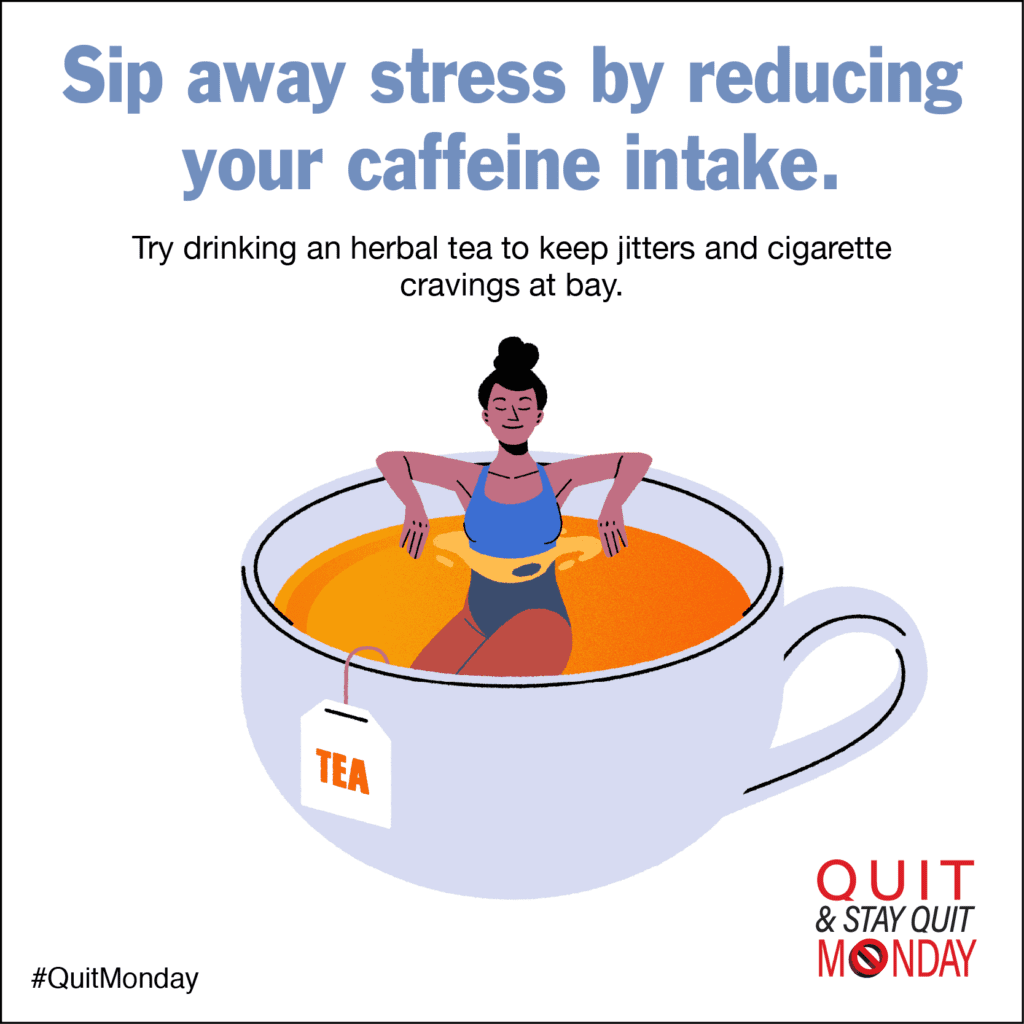The Effects of Caffeine and Smoking
How caffeine and smoking can affect your quit.
As you prepare for your Monday quit date, it is important to understand how the relationship between caffeine and smoking can affect you in the first few weeks of your quit. Caffeine actually has both a physiological and psychological effect on you when you smoke and when you quit. For example, non-smokers metabolize caffeine at a much lower rate than smokers, which means recent quitters will need half the amount of caffeine they drank as a smoker. Caffeinated drinks, especially coffee, also often act as a smoking trigger.
To help you deal with the effects of caffeine and smoking, we’ve put together the following six tips:
Don’t cut out caffeine completely. Caffeine is similar to nicotine because you can also experience withdrawal symptoms after going cold turkey. If you stop drinking caffeine completely, you may experience headaches, tiredness, constipation, or even depression. So why deal with withdrawal from two substances when you can focus on just quitting smoking?
Cut your caffeine in half. If you quit without reducing your caffeine intake, your body will become over-caffeinated. This can lead to symptoms like restlessness, muscle twitching, difficulty concentrating, and irritability. Many people who are overstimulated may become jittery, leading them to reach out for a cigarette to calm their nerves. Cutting your caffeine consumption by at least 50% can give you right amount of caffeine you need without feeling the symptoms of withdrawal or being over-caffeinated.
Avoid your coffee break routine. Many people associate drinking caffeine and smoking because of the habit of doing both together. So avoid having your beverage act as trigger by mixing up your routine! Sit in a different room than where you usually have your drink, go to a different store to get your coffee than the one where you typically bought cigarettes from, or replace the coffee/smoking break with a walk outside. Forming new habits that aren’t associated with smoking will help you through your quit.
Drink something else. Does even the taste of your caffeinated beverage remind you of smoking? Try switching out your usual drink with something else. There are many other beverages with caffeine out there to satisfy your taste buds.
Know where your caffeine is coming from. Your cup of a joe isn’t the only place where you might be getting caffeine. Caffeine can also be found in sodas, energy drinks, teas, and even in certain foods and medications. Consider all the sources where you get your daily caffeine and decide which ones to cut down on.
Include how you will deal with the effects of caffeine and smoking in your quit plan! Once you’ve thought through how you’re going to reduce your caffeine intake, make sure to include it in your quit plan.
